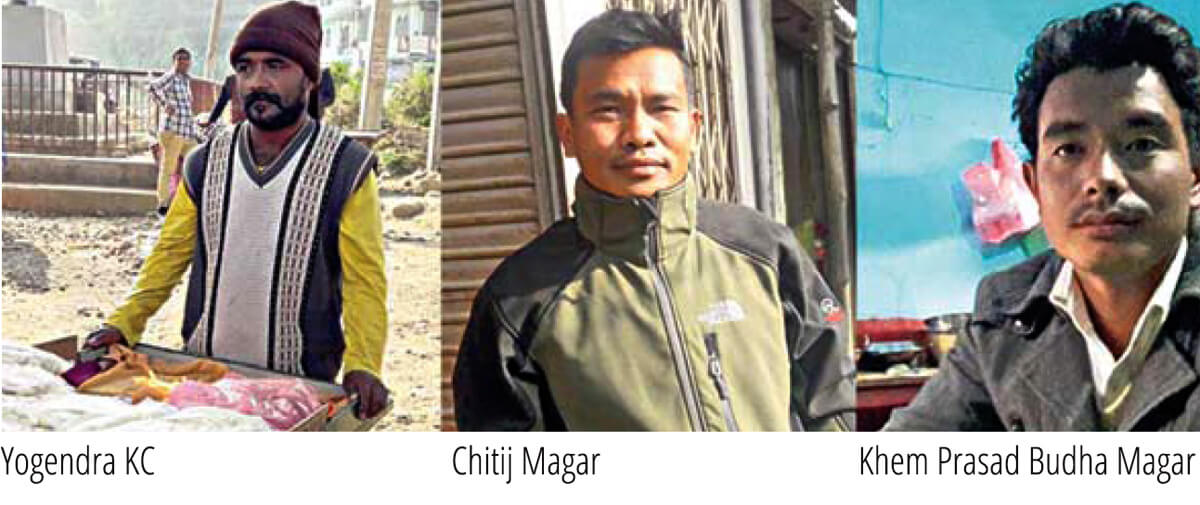Ex-guerrillas regret the war

Devendra Basnet in Nagarik, 22 November
Yogendra KC of Ramechhap was recruited into the ‘people’s war’ launched by the Maoists to overthrow feudalism and install a people’s government in Nepal. Twelve years after the war ended, he runs a footpath shop. In spite of all the political ups and downs of the past decade, it has made little difference to this former guerrilla, and he has no desire to remember the painful days of war.
“I joined because I dreamt about changing the face of the country, but the war destroyed me. Now, I just want to get on with my life from this shop,” he says. KC joined the Maoist militia in 2001, and went on to be a platoon commander.
A year previously, he was working in a garment factory in Kathmandu when the security forces arrested him on the charges of being a Maoist. “I knew nothing about the Maoists but they jailed me for six months,” he recalls. After his release, he went to Dhanusha and worked as a waiter, but he had an altercation with some soldiers posted there and he became their target.
“The army kept harassing me, and accusing me of being a Maoist even though I wasn’t. So, fearing for my own safety, I joined the Maoists,” says KC who then receiving military training, and actually led his unit in numerous battles. KC says his dreams to change the nation were dashed after the peace process. He was compelled to opt for self-retirement. “The party had agreed to integrate us into the Nepal Army based on educational qualifications,” he says, “but ironically it was the same bourgeoisie education which we fought against that was the requirement. “
After the peace process, KC received Rs500,000 compensation and went to Dang to start a business. But after the ice-cream factory he started went bankrupt, he now sells seasonal items in his footpath shop – the main source of income for his family of four. KC now feels that joining the Maoists was a waste of time, and there are many like him who are feeling pangs of regret. Khem Prasad Budha Magar from Rolpa is another ex-guerrilla. “I took up arms to build a new nation, but am struggling now to sustain myself.” After witnessing his father’s murder by the Royal Nepal Army, Magar joined the Maoists at age 10 to seek revenge. The child solider grew up in the Maoist militia.
After the peace agreement, he could not be rehabilitated into the army because he was only 17 and the minimum age requirement was 18. “I was eligible to fight in wars but the Maoists declared that I was ineligible to receive rehabilitation,” says Magar, who doesn’t want to get involved in politics, preferring to work in a construction company.
Also working in construction is Chitij Magar, who was an assistant commander in the Maoist militia ever since the beginning of the conflict. “I joined because I suffered many injustices and discrimination,” recalls Magar, who could not join the Army because of lack of schooling. “There was no way I could receive education that I was fighting against,” he says.
Magar regrets joining the Maoists and says that he and his comrades were tricked by their leaders. He says: “We were just stepping stones for the big shots to climb over.”




